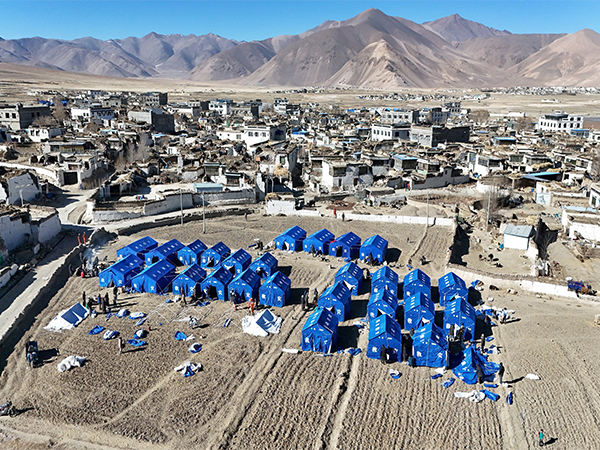Price of apartments in Seoul fell for first time in last one and half years
Nov 18, 2021

Seoul [South Korea], November 18 (ANI/Global Economic): As the demand for house purchases in Seoul hits year's low, the actual transaction price of apartments in Seoul fell for the first time in the last one and a half years.
The demand for house purchases has fallen due to fatigue from soaring housing prices and loan regulations and this showed that the real estate market is clearly changing.
According to the Korea Real Estate Board, the fluctuation rate of the apartment housing index in Seoul was -0.46 per cent (provisional figure) in October, which turned down to the negative from 1.52 per cent in September.
If the rate in October is confirmed to be 'negative,' it will turn to the negative for the first time in a year and a half since -0.86 per cent in April last year.
The fluctuation rate of the Seoul apartment's actual transaction price index was 2.03 per cent in July, 1.84 per cent in August, and 1.52 per cent in September, showing a clear decline for the past three consecutive months.
An official from the Korea Real Estate Board said, "Seoul's rate has decreased for three consecutive months in the third quarter. And in the case of the October figure, only half of the transactions have been reported, but it is likely to be negative. Based on statistics, it is true that the market is changing little by little."
The actual transaction of the apartment index is considered relatively accurate data because it only reflects the actually reported transactions.
The index is calculated for all actual transaction prices reported to the local government on the contract date.
As the property transaction report should be made within 30 days of the contract, the fluctuation rate in October has not been fully reported. Thus it was announced as a provisional figure.
The fluctuation rate in four out of five areas of Seoul fell. It decreased in the southeast (-1.41 per cent), northwest (-1.13 per cent), northeast (-0.18 per cent), and southwest (-0.06 per cent) except for the urban area (1.50 per cent).
The apartment actual transaction price increase rate also fell from 2.09 per cent in September to 0.85 per cent in October.
The increase in the metropolitan area (2.49-0.62 per cent) and provincial areas (1.65-1.15 pc) also decreased significantly.
Compared to September, the overall increase rate in seven large cities also decreased. The rate in Incheon (3.42-1.33 per cent), Daejeon (1.81-0.56 per cent), Ulsan (1.37-0.36 per cent), and Sejong (1.35-0.49 per cent) significantly declined.
On the other hand, there are also some analyses that it is hard to say that the housing prices hike in Seoul has completely slowed down. The weekly apartment transaction index in Seoul by the Korea Real Estate Board also fell for 8 consecutive weeks from the second week of September but rebounded slightly near the baseline (100). In the second week of November, the index was 100.9, up 0.2 points from 100.7 in the first week.
Private economic institutes predict that house prices will continue to rise next year.
Woori Financial Research Institute released a report on November 10, and said, "The increase rate will decrease from this year due to a base rate hike, stricter loan regulations, and expansion of housing supply," and that, "But the increase rate of Korean house prices will reach 3.7 per cent next year." (ANI/Global Economic)




















